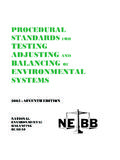Transcription of Statements on Standards for Tax Services
1 Statements on Standards for Tax Services American Institute of Certified Public Accountants S/STANDARDSETHICS/General Information on SSTSs Written simply & objectively Provides for an appropriate range of behavior Some rules are subjective & some terms are left undefined deliberately Terms & concepts are generally tax-based Many similarities to Circular 230 Enforcement is undertaken with flexibility Recent revisions became effective 1/1/10 Will Relevant TermsWill Generally 90% or greater probability of Generally 90% or greater probability of success if challenged by IRSsuccess if challenged by IRSS houldShouldGenerally 70 Generally 70 -- 80% probability of success if 80% probability of success if challenged by IRS challenged by IRS More Likely More Likely than Not than Not (MLTN)(MLTN)Greater than 50% probability of success if Greater than 50% probability of success if challenged by IRS challenged by IRS Substantial Substantial AuthorityAuthorityWeight of authorities in support of a position Weight of authorities in support of a position is substantial in relation to the weight of is substantial in relation to the weight of authorities in opposition to the position (40%)authorities in opposition to the position (40%)
2 RealisticRealisticPossibility of Possibility of SuccessSuccess1 in 3 possibility of success if challenged by 1 in 3 possibility of success if challenged by IRSIRSR easonable Reasonable BasisBasisSignificantly higher than not frivolous and Significantly higher than not frivolous and lower than realistic possibility of successlower than realistic possibility of successNot FrivolousNot FrivolousNot patently improper; some merit to positionNot patently improper; some merit to positionFrivolousFrivolousPatently improperPatently improperSSTS No. 1 Tax Return Positions Recommending tax return positions & preparing or signing tax returns Includes amended return, claims for refund, & information returns filed with any taxing authority Recognizes responsibility to both taxpayers and to the tax systemSSTS No.
3 1 Tax Return Positions Follow reporting standard in applicable jurisdiction Realistic possibility of success is floor for undisclosed positions Reasonable basis is floor for disclosed positions Advise taxpayer regarding potential penalty consequencesInterpretation No. 1-1 Currently under revision Provides explanations & illustrations for Statement No. 1 Warranted in existing law or can be supported by a good-faith argument for an extension, modification, or reversal of existing law Not limited to the sources of authority described in IRC Sec. 6662 Interpretation No. 1-2 Currently under revision Provides interpretation of a member s responsibilities in connection with tax planning Clarifies how the Standards apply across the spectrum of tax planning The interpretation covers both prospective & completed transactions SSTS No.
4 1 & Interpretation No. 1-1 apply to tax planning servicesInterpretation No. 1-2 Suggested Due Diligence Steps Establish the relevant background facts Consider the reasonableness of the assumptions & representations Apply the pertinent authorities to the relevant facts Consider whether there is a business purpose & economic substance for the transaction Arrive at a conclusion supported by the authoritiesSSTS No. 2, Answers to Questions on Returns Standards when one or more questions on the return have not been answered Make a reasonable effort to obtain the information necessary to provide appropriate answers to all questions Allows judgment to omit answers to a question if the answer is not readily available & the answer is not significant in terms of taxable income or loss or the tax liabilitySSTS No.
5 3, Certain Procedural Aspects of Preparing Returns Standards for obligation to examine or verify supporting data or to consider information related to another taxpayer May in good faith rely, without verification, on information furnished by taxpayer or third parties Should not ignore the implications of information furnishedSSTS No. 3, Certain Procedural Aspects of Preparing Returns Make reasonable inquiries if the information furnished appears to be incorrect, incomplete, or inconsistent Refer to the taxpayer s returns for one or more prior years Make appropriate inquiries to determine whether tax requirements have been met; travel and entertainment documentationSSTS No. 4, Use of Estimates Taxpayer s estimates may be used unless prohibited by statute or rule, provided the member determines the estimates are reasonable based on the facts known to the member Estimates should not imply greater accuracy than exists Disclosure of use of estimate is generally NOT required (unless due to unusual circumstances such as fire, illness or death)SSTS No.
6 5, Departure From a Position Previously Concluded in an Administrative Proceeding or Court Decision May recommend a tax return position (or prepare or sign a tax return) that departs from the previous treatment; taxpayer facts may have improved, such as proper documentation available However, a taxpayer may be bound to a specified treatment in a later year When previous-year decision is binding, it may be the only position supported by the Standards of SSTS No. 1 SSTS No. 6, Knowledge of Error: Return Preparation and Administrative Proceeding Become aware of an error in a taxpayer s previously filed tax return or of a failure to file Error includes any position, omission, or method of accounting that, at the time the return is filed, fails to meet the Standards set out in SSTS No.
7 1 Includes a position taken on a prior year s return that no longer meets these Standards due to legislation, judicial decisions, or administrative pronouncements having retroactive effect An error does not include an item that has an insignificant effect on the taxpayer s tax liabilitySSTS No. 6, Knowledge of Error: Return Preparation and Administrative Proceeding Should promptly inform the taxpayer of the error and recommend corrective measures Recommendations may be given orally May not inform the taxing authority without the taxpayer s permission, except when required by law or court order Should advise client to seek legal counsel if the error could possibly lead to fraud or other criminal chargesSSTS No.
8 7, Form and Content of Advice to Taxpayers Standards concerning certain aspects of providing advice to a taxpayer Considers responsibility to communicate with client when subsequent developments affect advice previously provided Should use judgment to ensure that tax advice reflects professional competence & appropriately serves the taxpayers needs Should always assume the advice given will affect the taxpayer s tax returns; consider Statement No. 1 SSTS No. 7, Form and Content of Advice to Taxpayers Not required to follow a standard format in communicating written or oral advice No obligation to communicate when subsequent developments affect advice previously provided except:While assisting taxpayer in implementing procedures or plans associated with the advice, orWhen a member undertakes this obligation by specific agreementAICPAIRC and Circular 230 SSTS No.
9 1, Tax Return Positions,Interpretation No. 1-1 and Interpretation No. 1-2 Circular No. 230 , Standards for advising with respect to tax return positions and for preparing and signing returnsCircular No. 230 , Requirements for covered opinionsCircular No. 230 , Requirements for other written adviceInternal Revenue Code (IRC) 6662, Imposition of accuracy-related penalty on underpaymentsIRC 6694, Understatement of taxpayer s liability by tax return preparerSSTS No. 2, Answers to Questions on ReturnsIRC 6707, Failure to furnish information regarding reportable transactionsSSTS No. 3, Certain Procedural Aspects of Preparing ReturnsCircular No. 230 , Diligence as to accuracyCircular No. 230 , Standards for advising with respect to tax return positions and for preparing and signing returnsTreas.
10 Reg. (e)SSTS No. 6, Knowledge of Error: Return Preparation and Administrative ProceedingsCircular No. 230 , Knowledge of client s omissio












